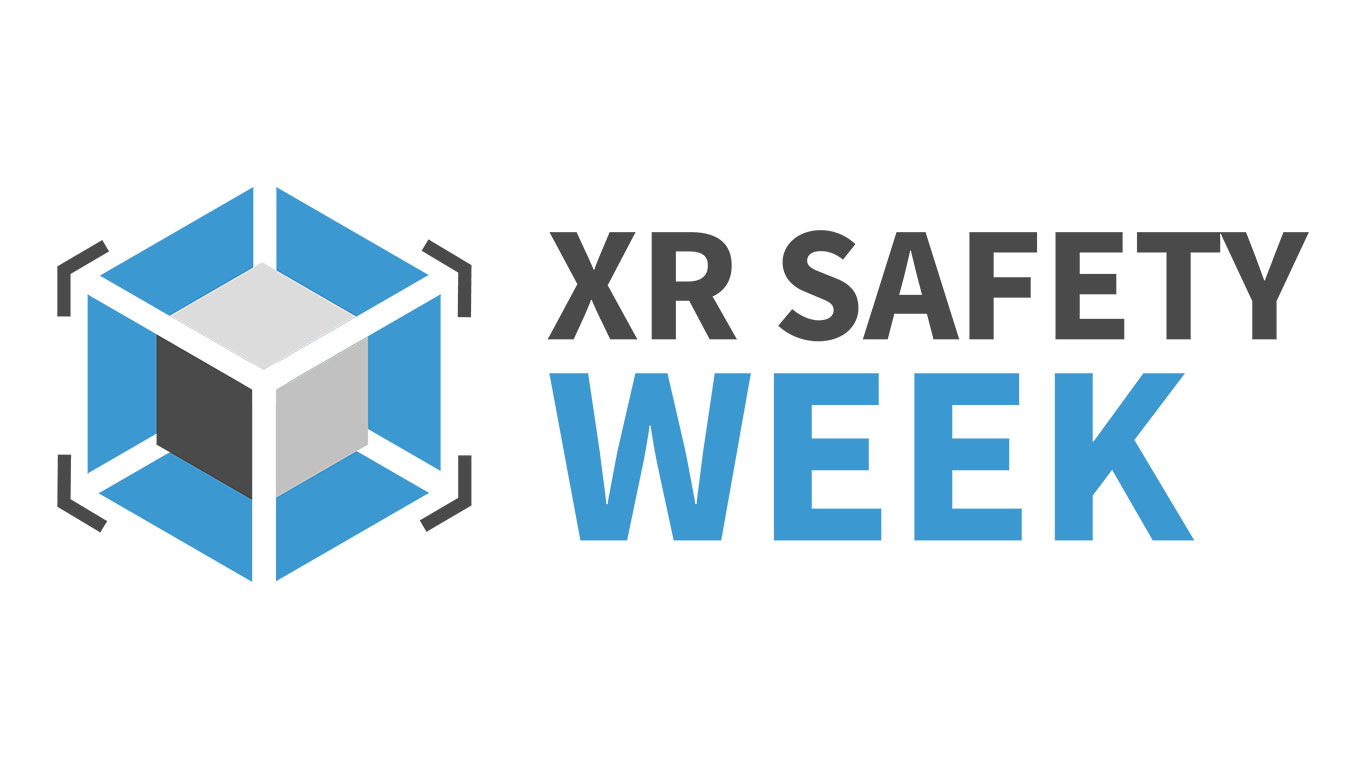Marco Magnano on XR Safety Week, journalism, and the meta…
December, 6th will be the start day of XR Safety Week, an event that aims at fostering a healthy debate on some social themes surrounding XR, and at promoting safety, privacy, inclusion, and accessibility for everyone in our ecosystem. These are themes that have always been important to me, and that in my own small way, I have always tried to talk about. That’s why I will be a panelist at the event this year, and I am spreading the word about it with two posts today and tomorrow to help in making it a success.
This is the program of the event, including the days and the tracks:
- Day 1 – Dec 6. Immersive Storytelling & Journalism
- Day 2 – Dec 7. Child Safety
- Day 3 – Dec 8. Diversity & Inclusion
- Day 4 – Dec 9. MedicalXR and Immersive Healthcare
- Day 5 – Dec 10. Privacy & Safety and Digital Human Rights
The first day, December 6th, will have as “track chair” Marco Magnano, journalist and XR professional. He is Italian like me and we even live in the same city, so I had absolutely to ask him some questions about the XR Safety Week and the topic of his first day. This is the transcription of the written interview that we had:
Hello Marco, Can you please introduce yourself to my readers?
Thank you for starting with the most challenging question for me! Since we come from the same area in Italy, you know how difficult it can be to talk about myself.
That being said, I am a journalist specializing in foreign policy, mainly focusing on the Middle East. Still, I’m a bit of an old nerd. Around the year 2001, so at the beginning of high school, the Internet entered my life, and I discovered the Indymedia project, which was one of the most important independent media outlets in the world. Their thoughts on surveillance, control, and responsible innovation deeply marked my path. When in 2019 XR Safety Initiative (XRSI) was founded, I was actively exploring the implications of the constant reality capture. I didn’t hesitate to join for even a second. Today, I’m coordinating the communications in the global HQ, and I’ve recently founded the European counterpart, XRSI Europe.

What is the XRSI Safety Week?
The official definition is that the XR Safety Week is a place to explore the challenges of XR in various critical areas of the immersive ecosystem. But I defer the 5-days program to the website www.xrsafetyweek.org.
In my vision, it is a way to make different worlds meet. I’m sure that no one will take offense to this. Still, too often, the innovation environment tends to create some sort of private clubs, where the same voices, and therefore the same ideas, circulate in a big or not-so-big echo chamber. By switching the focus from XR to the intersection of XR with some specific contexts, we try to make “virtual” and “real” world challenges to meet.
There are two things, though, that it’s opportune to add when it comes to the XR Safety Week. First of all, the whole week is free and open to everyone. We decided to not put any barrier to the access: no ticket, no registration required, no data collection. The priority now is to have a stronger and more aware community.
The second thing is a recommendation: do not miss Day 5, Friday the 10th of December. Since it’s the UN’s Human Rights Day, we launched Digital Human Rights Day with EFF, AccessNow, and many others. There is a rich schedule of initiatives for that day. In parallel, we will host the first XR Data Classification Roundtable. Plus, during the Virtual Citizens Forum, expect a big announcement.
Your track is about “Immersive Storytelling & Journalism”. Can you detail a bit more this topic?
I want to be very honest with you. The two terms, “Storytelling” and “Journalism,” depict different things. Still, we were not ready for an XR Safety Month of events, so we placed these two topics on the same day.
Why am I saying this? Because, aside from the different final goals of the two disciplines, I also think that they are in two very distinct phases.
Let’s start by saying that everything tells a story, and everything can be a story. The challenge is understanding how to make it emerge. However, we have a pretty peculiar situation when it comes to journalism and XR: XR is both a medium and a topic.
Nothing bad about it, obviously, but this is the sign of a still-evolving domain. Compare this with radio or newspapers: how many radio shows talk about radio? How many newspapers talk about newspapers? Only a few, and usually for insiders. On the contrary, for XR, we are still in a phase where you talk about the devices, applications, potential uses, and so on to involve a larger audience. The issue is that, leaving the experts like you and moving to the mainstream media, the only thing that is left is a “gadget approach”: AR/VR reaches the news when a new device is released, or when Facebook rebrands as Meta, but it’s not part of everyday life yet.
In the meantime, there are significant efforts in trying to understand how to use XR as a tool for more compelling journalism. Could we be indifferent to climate change if we could visualize how the place we live will change? Wars always look far away from us, but what happens if you could see a humanitarian crisis from the inside? I think that starting looking at XR as a medium can also change the way we think about all the data we collect, which can be gold for investigative journalism. I will discuss this on Monday, the 6th of December, with professor Adam Marton, director of the Capital News Service Data and Graphics Bureau and lecturer within the Philip Merrill College of Journalism at the University of Maryland.
Do you think all voices from people from all the backgrounds are currently heard in the communication around immersive technologies? How can we improve on this?
This is a very interesting question. In the first speech that I wrote for XRSI’s CEO, on the occasion of AWE 2019, we decided to open with what we called “the unheard voices of XR”, persons that for various reasons were not considered in the debate around the emersion of the immersive domain. It’s funny that some of those voices are now excluding others from being heard two years later, but this is quite a classic. Anyway, getting back to your question, the answer is a firm “no.”
Since we live in a performative era, who feels better in showing up or has better opportunities to shine can easily occupy the whole stage, especially in a community like this, which is still expanding and quite small. But it’s not only that: many individuals suffer from systemic exclusion, due to their origins, to their language, or maybe to their views.
Now, how we can improve on this is a tricky question because, on the two sides of the Atlantic, we have quite different views. What I can say is that we need two different approaches: one is tackling the systemic inequalities, and this is up to lawmakers and policymakers, the other is creating grassroots initiatives, such as the CyberXR Coalition we promoted in 2020, to build awareness campaigns on the need of representation, inclusion, and accessibility for everyone in the emerging tech domain.
There is a lot of miscommunication around the “metaverse”, and many people outside our circles have not even understood what it means. How do you think we can overcome this communication gap?
Well, first of all, with us understanding it! Obviously, I’m kidding, but consideration must be done: in general, the emerging technologies domain is highly influenced by hype, and since the words we use are essential, continually changing terms is not helping people understand. For instance, think about the “crypto” abbreviation. Until the last decade, when you read crypto, you would have probably thought about cryptography, and now you will think about cryptocurrency. Same term, two radically different concepts. With “metaverse,” we are still trying to understand if everyone in the industry gives the same meaning to the word, and I’d definitely say no. There is only one instance in the “classical” definition of the Metaverse. Instead, many tech corporations are boasting of creating “a” metaverse. So, the first step to overcome this communication gap is to fix the definition to a standard one and then start building on it.
I also think we need to try to reassure people about the risks and challenges of the Metaverse. A couple of weeks ago, I was discussing with a Chinese journalist, and he noticed that with the technological transformation in the West, we have moved from a “Star Trek” vision of innovation, where everything had a purpose and served the greater good, to a “Black Mirror” vision, where everything will constrain us in a shiny new jail. We should be aware of our role as innovators at the forefront of the transformation.

If someone wanted to support XRSI, how can he/she do that?
There are many ways to support XRSI. The first one is through donations. Visiting the page https://xrsi.org/donate, you can arrange your tax-deductible donation, and obviously, you can choose to remain anonymous.
But donations are just one of the many opportunities. I know that the most visible part of XRSI’s work is the XR Safety Week and some publications, but behind that, there is constant research, study, analysis, and understanding. So, if you want to support XRSI from the basis, you can start collaborating with us in the research activities throughout the year or even reach out to us to propose a project, a grant application, or anything you have in mind. This is true especially for universities, lawmakers, public bodies, and other nonprofits. The larger the network is, the higher the chances of fostering a positive transformation are!
Anything else to add to this interview?
One quick thing: as I just said, our primary goal is research. In 2022, we will launch the new edition of the Privacy & Safety Framework, structured in a main, general-purpose document and various discipline-specific frameworks, such as Medical or Higher-Education. I think it’s worth a recommendation: don’t miss them!
I thank Marco for the time he has dedicated to me… and especially for having remarked that we can’t explain to the mainstream what is the metaverse if even we ourselves don’t agree on its meaning! I can’t wait for the panel on the 6th to speak about this topic with the other great speakers.
(Header image by XRSI)
Disclaimer: this blog contains advertisement and affiliate links to sustain itself. If you click on an affiliate link, I'll be very happy because I'll earn a small commission on your purchase. You can find my boring full disclosure here.



